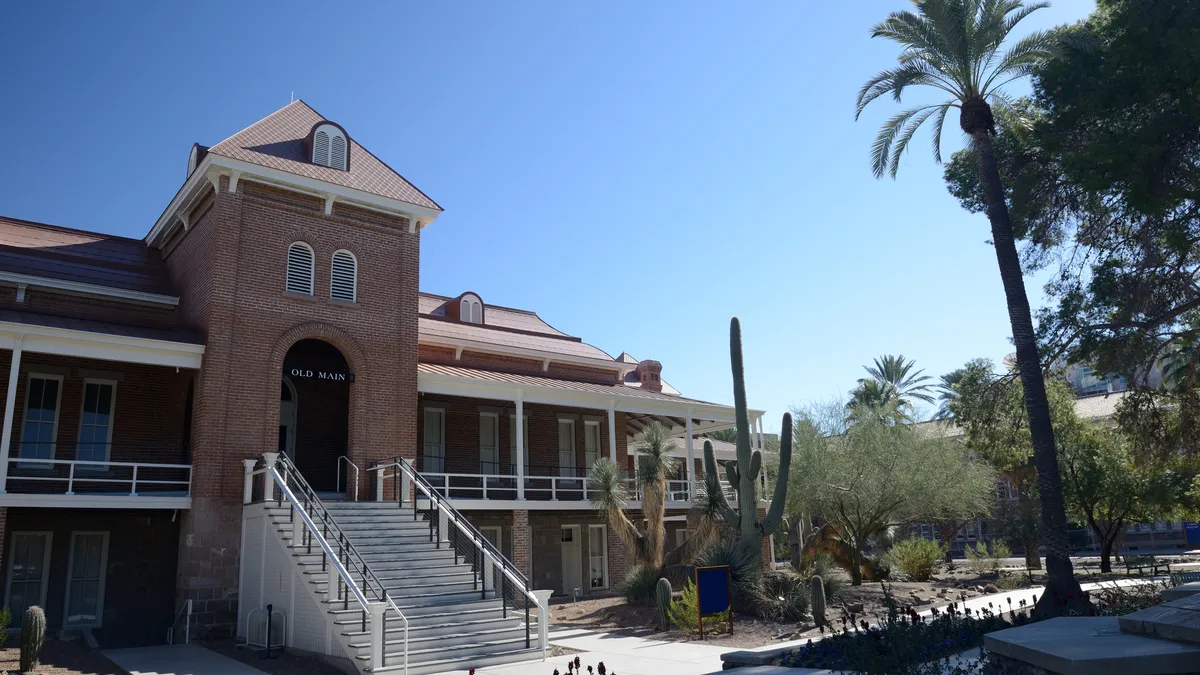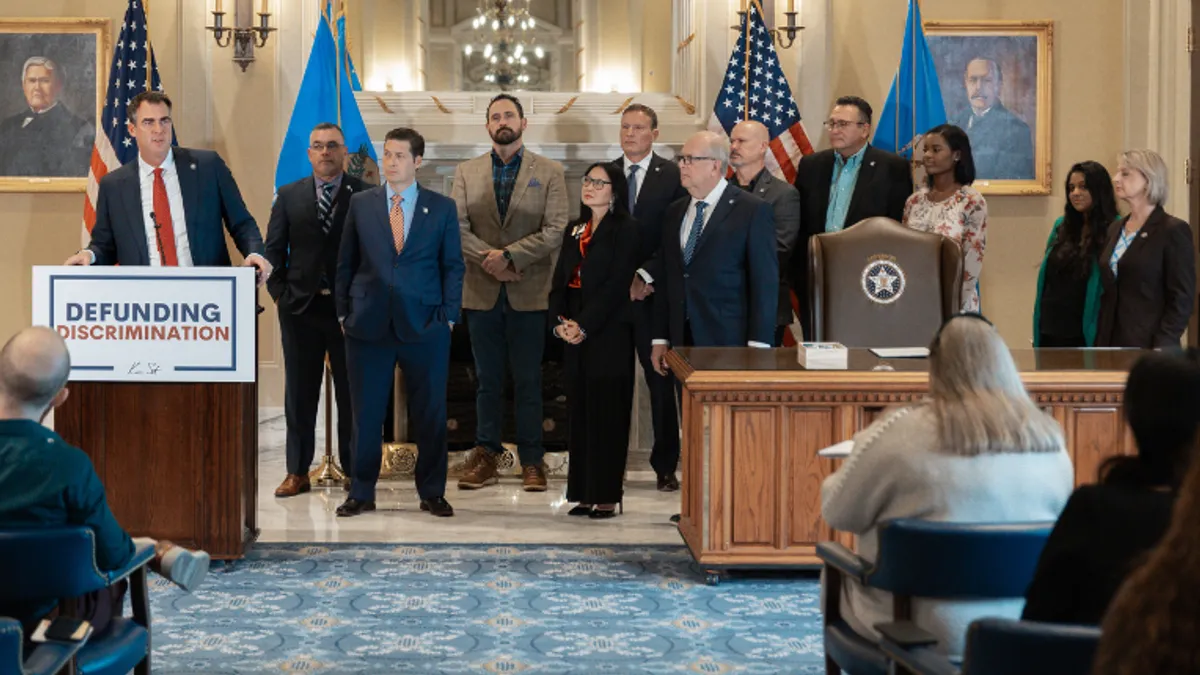Dive Brief:
- The University of Southern California and the University of Arizona are requiring surgical masks or higher-grade masks on their campuses. The new rules mean commonly worn cloth masks are no longer sufficient. Examples of approved higher-grade masks include KN95s and KF94s.
- University of Arizona is requiring the masks in all indoor spaces where social distancing isn't possible and on university-provided transportation. Surgical-grade masks will be available for free at entrances to University of Arizona buildings and classrooms, according to letters to students and to staff from President Robert Robbins.
- A similar distribution process will be rolled out at USC, according to guidance the university posted online. Appropriate masks will be available at campus entry points. USC is asking employees to contact their administrative units to get surgical masks for work. USC followed the California Department of Public Health, which recently updated its masking guidance and recommends wearing at least a surgical mask.
Dive Insight:
Health agencies nationwide are updating their guidance in response to the omicron variant of the coronavirus.
"Omicron is a game changer. It's three times as transmissible and multiplies faster," said Anita Barkin, co-chair of the American College Health Association's COVID-19 task force. "The cloth masks are not effective any longer."
Many colleges are shifting to stronger mask requirements, Barkin said. She called the change necessary.
The CDC says the omicron variant likely spreads more easily than the original coronavirus. The agency also expects that anyone infected with the variant can spread it, regardless of whether they are vaccinated or have symptoms. It has yet to definitively say whether the variant tends to cause more severe illness. Some early evidence has indicated omicron is likely to carry a lower chance of serious illness, but risks depend on many factors.
For new masking requirements to be effective, colleges will need to communicate effectively, Barkin said.
"Schools need to clearly articulate what the expectations are for the on-campus experience," she said. "This is no doubt a very heavy lift."
Barkin recommends reaching students using student leaders and social media. Colleges should provide clear information on what masks people need and how to wear them, as well as about vaccination mandates and what people should do if they get sick, she said.
At USC, all eligible faculty, staff and students are required to be fully vaccinated against the coronavirus. The University of Arizona has no requirement covering students and is not currently enforcing an employee vaccine mandate covering workers at federal contractors due a court-issued injunction.
USC and the University of Arizona aren't the first institutions to be specific about the types of masking they require. This fall, Amherst College required people in academic spaces operating at full capacity to wear either a KN95 mask or two layers of masks.











